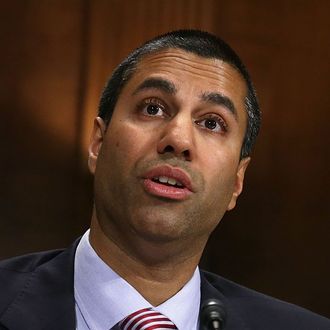
Ajit Pai’s FCC is, like the rest of the Trump Train, off to a rollicking and hypocritical start, if two big news items this week are anything to go by. On Tuesday, Pai introduced an initiative to identify areas desperately in need of broadband deployment (good!) and today, the Washington Post reports that the FCC has blocked nine companies from participating in a federal program that subsidizes broadband service for low-income households (bad!).
We’ll begin with the latter, which concerns the government’s Lifeline program. That program provides registered households with a $9.25 credit each month, which can be used to pay for landline or mobile phone service. Last year, the FCC expanded the program to include broadband. Nine ISPs were blocked from participating in the program, including one operating in more than 40 states to provide broadband access to school districts.
“These last-minute actions, which did not enjoy the support of the majority of commissioners at the time they were taken, should not bind us going forward,” Pai said of the programs expansion, per the Post’s report. Lifeline is known among conservative media outlets as the Obamaphone program. Part of the fear is that the program’s subsidies could be misused or abused, a concern that is mostly unfounded.
This would be run-of-the-mill conservative government shrinkage if not for Pai’s Tuesday announcement, which supports increased broadband access in a way more friendly to the private sector. The new Broadband Deployment Advisory Committee will identify regulations impeding the spread of broadband internet. According to the Daily Dot, Pai supports “tax incentives for companies to build high-speed internet networks in rural and impoverished regions of the country.” At the same time, he has opposed allowing municipal ISPs run by local governments.
Looking at this broadly, Pai (a former Verizon lawyer) seems to support the expansion of broadband only in the case that private, monopolistic ISPs are allowed to build infrastructure and overcharge users for subpar service. The thought of any public programs seeking to increase internet access, which is practically on par with phone service in terms of necessity, is somehow beyond the pale. Broadband access is good, but only if it helps the right corporations.





























